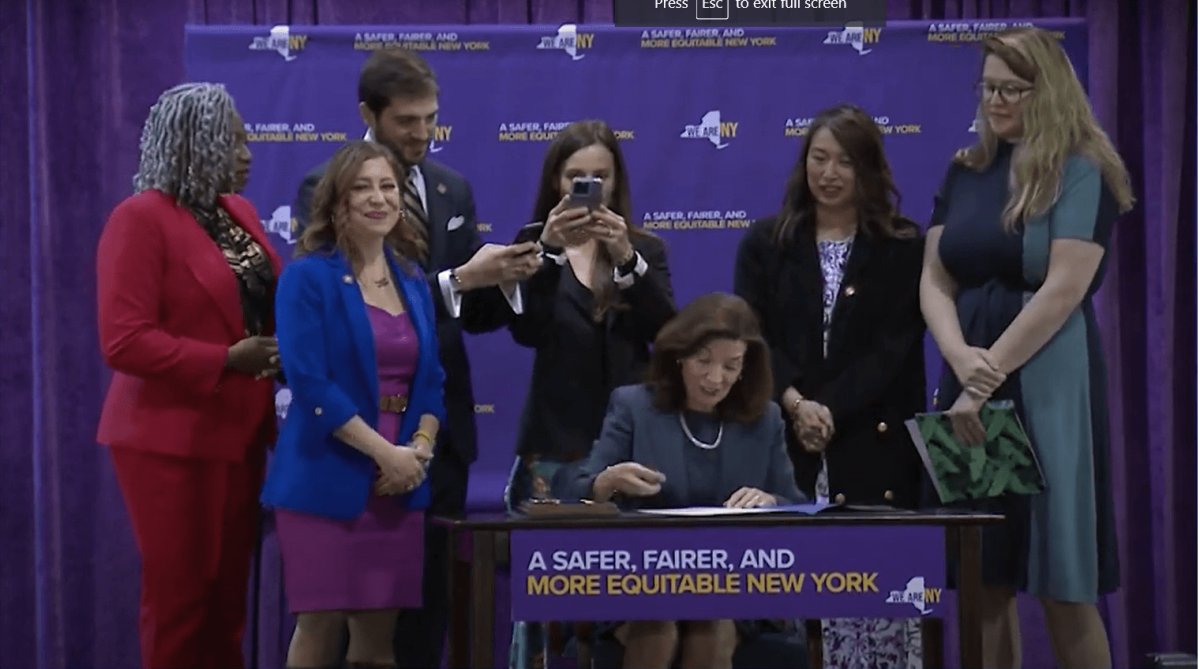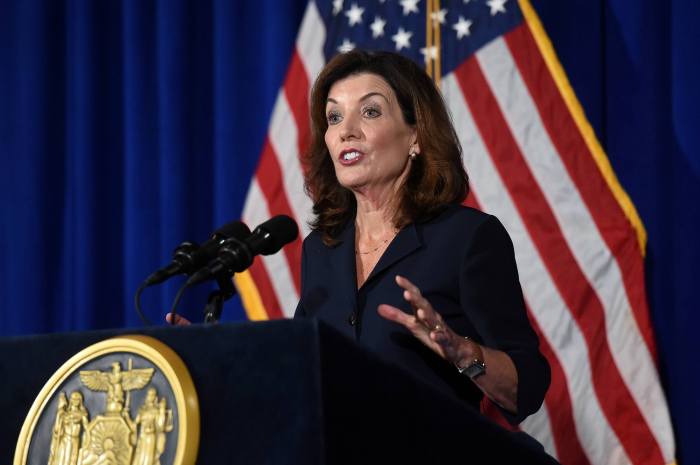Governor Kathy Hochul signed a suite of bills into law Wednesday aimed at combatting workplace sexual harassment, seeking to clear up the filth in state government left behind after the resignation of her scandal-ridden predecessor Andrew Cuomo.
The three bills establish a toll-free confidential hotline to report workplace sexual harassment, prohibit retaliatory action against employees for opposing “unlawful discriminatory practices,” and bring public employees under the umbrella of the state’s human rights law and its protections against workplace discrimination already in effect for private sector workers.
“Seems like there was a loophole out there,” Hochul said at a Wednesday morning bill signing at the Javits Center, referring to the latter bill. “Let’s close the loophole once and for all, that says that you are subjected to the human rights laws, and that means that your employees have all the protections that are out there in the private sector. They now are conferred upon all state workers for the first time.”
The passage of the bills comes after a long lobbying effort by members of the Sexual Harassment Working Group, a cadre of former state legislative staffers who had experienced sexual harassment and other types of discrimination and retaliation at the hands of their former bosses. Those bosses were some of the most powerful people in Albany, including the late, disgraced former Assemblymember and Brooklyn Democratic boss Vito Lopez and former Bronx Senator Jeff Klein, who ran the breakaway Independent Democratic Conference.
Tori Kelly, a member of the SHWG who endured harassment as a staffer for Lopez, referred to the human rights law’s not covering public employees as the “personal staff loophole,” otherwise known as the “license to harass,” and said that the loophole had been used against her when she was seeking justice against her perverse boss.
“I appreciate that the trauma that I have endured has now better informed our laws,” Kelly said at the bill signing. “All three bills are vital so that victims trust the system and feel safe to bring their cases forward.”
“My experience may have made the news but it is not unique,” Kelly continued. “Today we are taking a major step forward, but there is still so much to do. Sexual harassment remains prevalent, and we will continue to root it out and dismantle the systems that protect abusers.”
Workplace sexual harassment in state government has become only more prevalent an issue since eleven women accused Gov. Andrew Cuomo of sexual harassment and retaliation last year. Facing imminent impeachment, Cuomo resigned last August and was replaced by Hochul, his lieutenant governor, but he has denied the misconduct accusations (which prosecutors declined to press charges on despite finding the victims credible) and is currently mounting something of a comeback attempt, speaking at churches in the five boroughs and buying television ads where he argues he was railroaded.
Hochul has concertedly attempted to distance herself from her predecessor and the way he governed the state, seeking a more collaborative and less combative Executive Chamber, and seeking to “erase” Albany’s culture of sleaze.






































